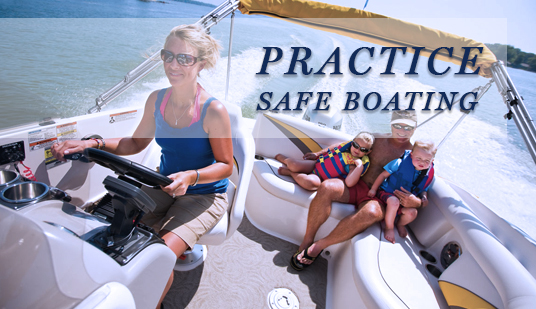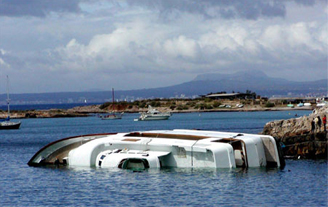
Boating is a great way to unwind, whether you spend the day fishing, skiing or just riding the waves. With summer in full swing, many families will be heading out to the lake or the beach for a day of water fun. Before heading out, we want to make sure that you have all the items necessary to stay legal and comfortable.
Legally Required Items
There are some items that state and federal governments require you to have on board the boat. Failure to pack these items can mean a hefty fine and a possible court date.
Review our checklist below before heading out to ensure you haven’t missed one of these items.

-
– A wearable life jacket for every person on the boat- Life jackets must be coast guard approved. Children under 13 must wear life jackets at all times, while others must simply be able to access them quickly.
-
– A throwable life-preserver device for each person on the boat- This law only applies to boats that are 16 feet or longer.
-
– A visual distress signal– Distress signals can be flares, a flag or a flashing light and are required when boating in coastal waters, the Great Lakes or at sea.
-
– A fire extinguisher– If the engine compartment of the boat is enclosed or below the hull, a functioning fire extinguisher is required.
Although not required by law, it’s also a good idea to have a whistle, which can help alert other boaters if help is needed. Check with state laws before heading out, as some of them have additional requirements. For example, if someone under the age of 18 will drive the boat, some states require that they have proof of completing a boating safety course.
Other Helpful Items
There are other items that while not required by law, are critical to staying safe on the water.
-
– Broad-spectrum sunscreen with an SPF of 30 or higher- If you will be swimming while out on the water, opt for a waterproof sunscreen.
-
– Pre-filled water bottles– Take one to two bottles of water for each person on the boat to avoid dehydration. Avoid drinking soda or caffeinated beverages, which can speed dehydration. In addition, avoid drinking alcohol which can cause impairment and increase the risk of harm. It is unlawful for anyone consuming alcohol to operate a boat.
- – First aid kit– In addition to containing supplies for standard scrapes and cuts, make sure the kit has anti-nausea medication to treat sea sickness.
- – Appropriate clothing– Pack a long sleeve shirt and a broad-brimmed hat to put on for protection in case the sun gets to be too much.
The information in this article was obtained from various sources. This content is offered for educational purposes only and does not represent contractual agreements, nor is it intended to replace manuals or instructions provided by the manufacturer or the advice of a qualified professional. The definitions, terms and coverage in a given policy may be different than those suggested here and such policy will be governed by the language contained therein. No warranty or appropriateness for a specific purpose is expressed or implied.


